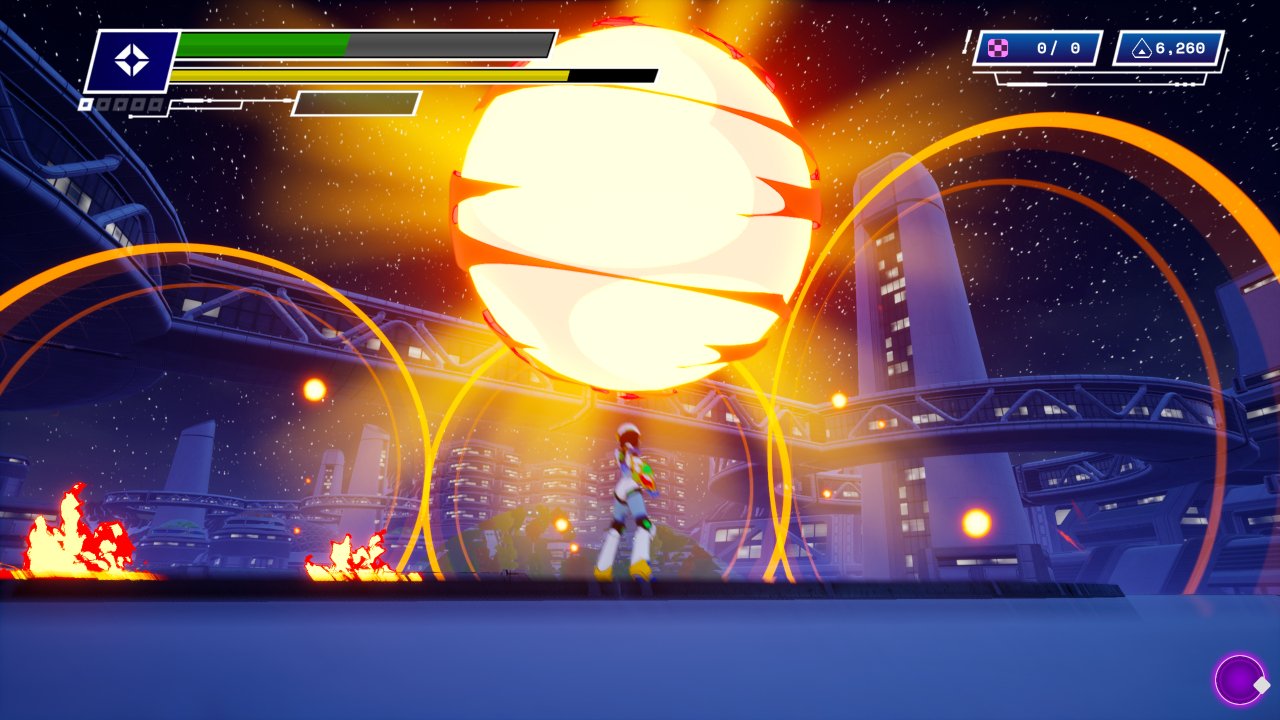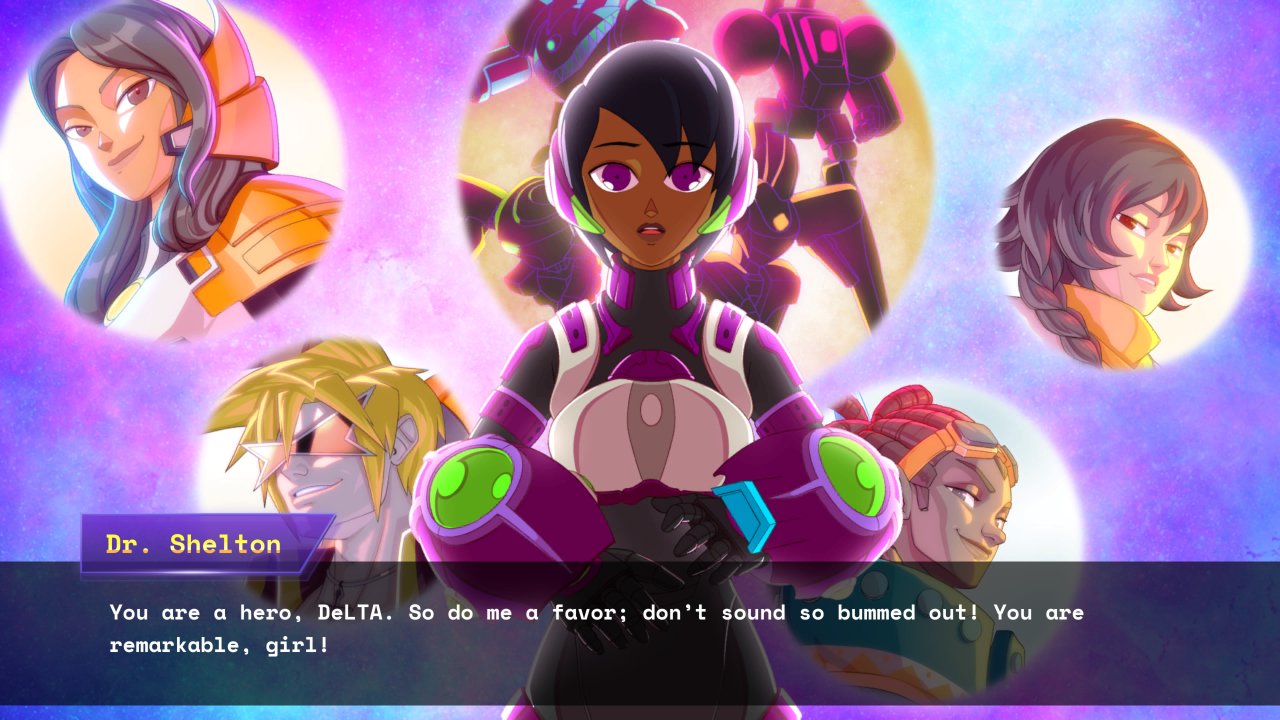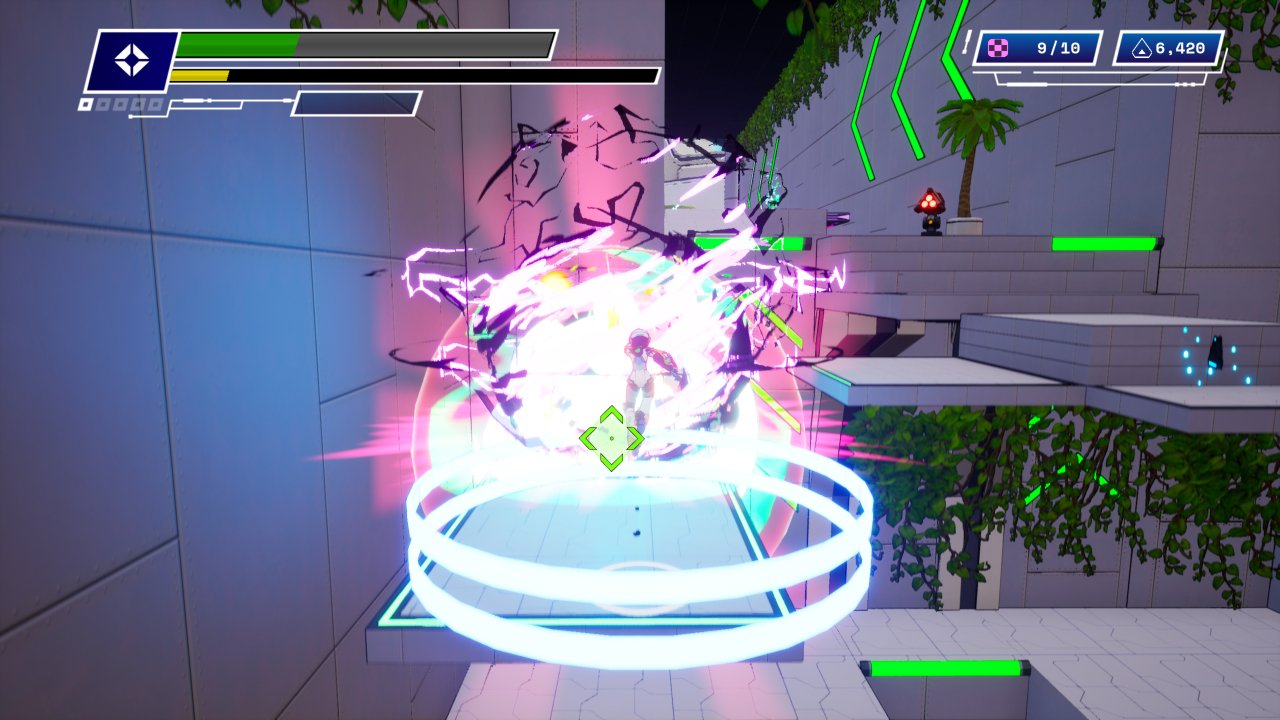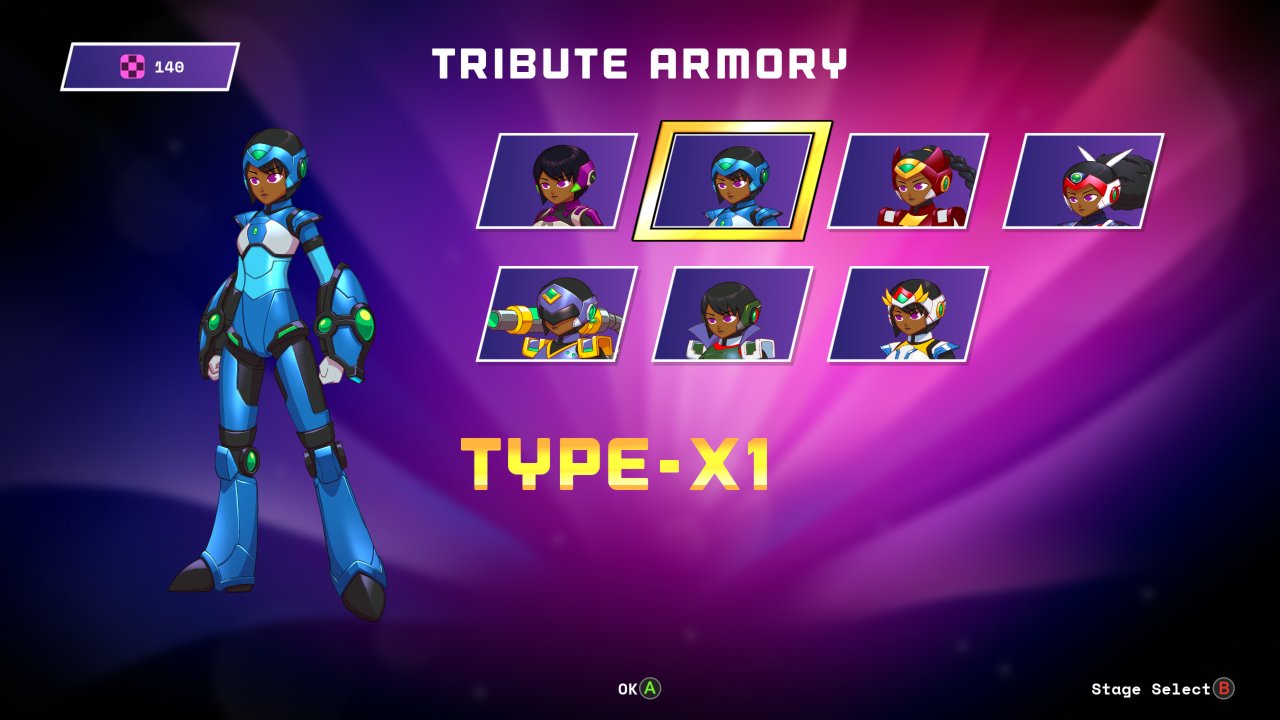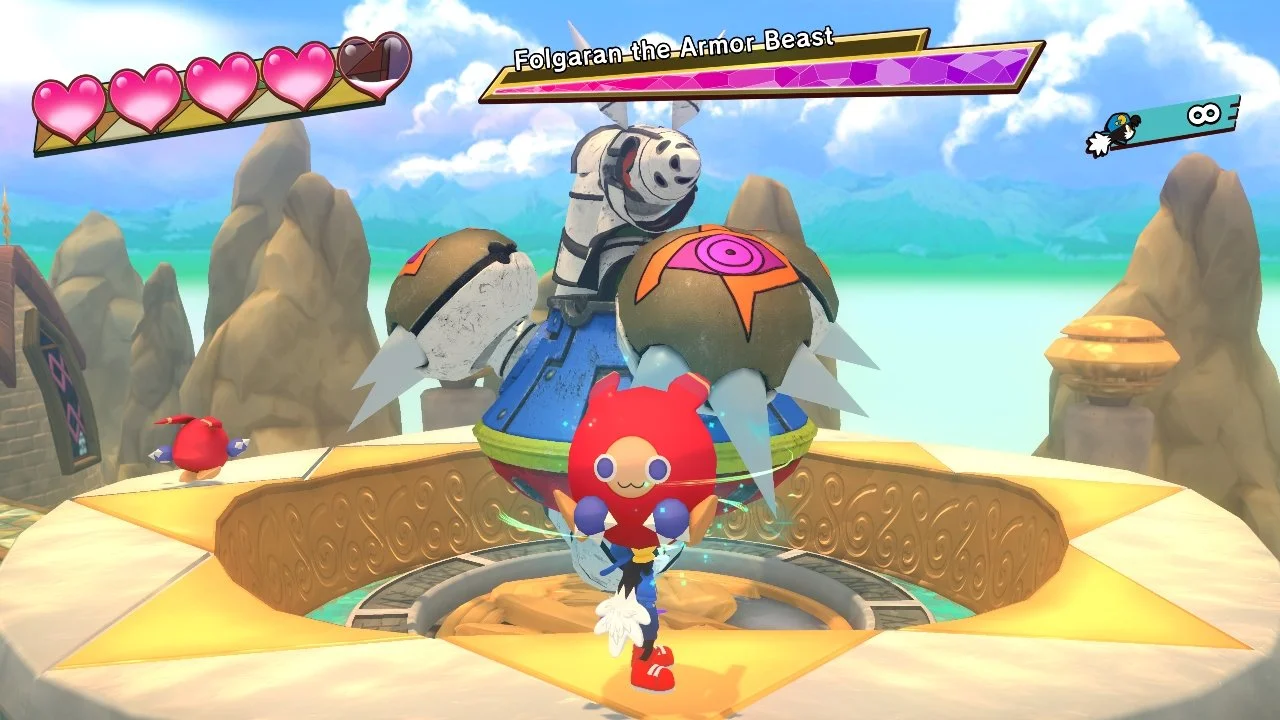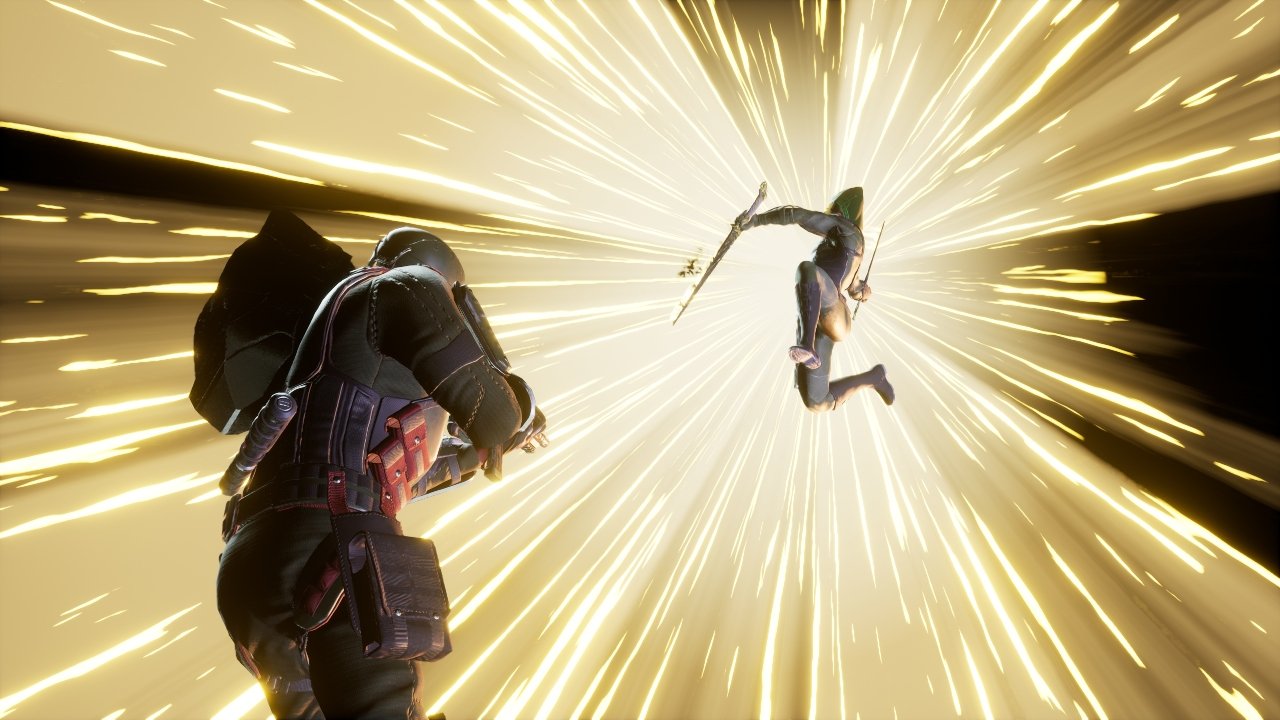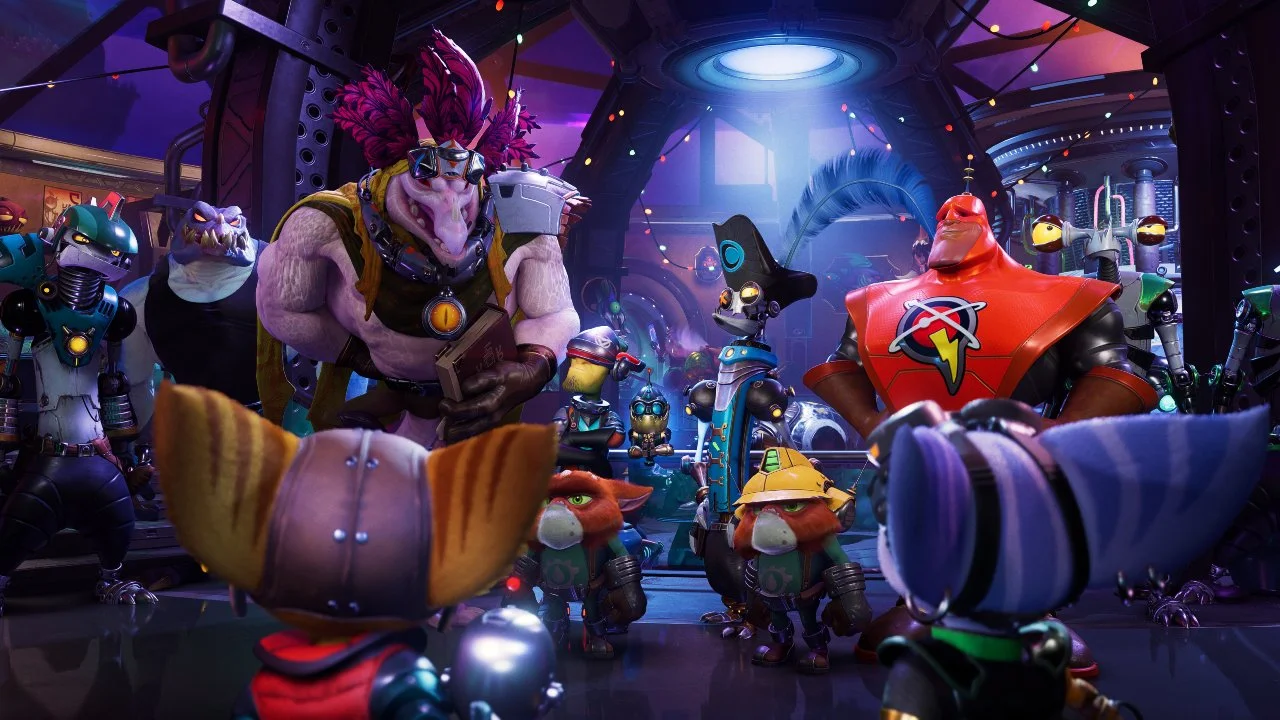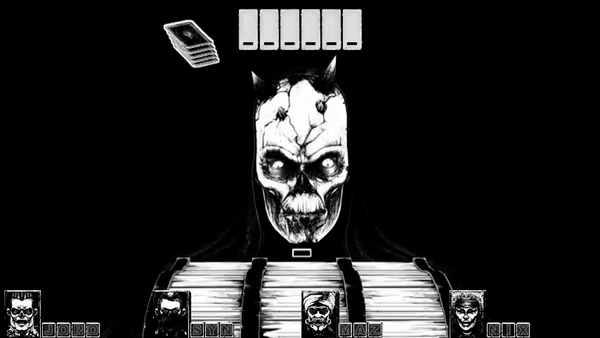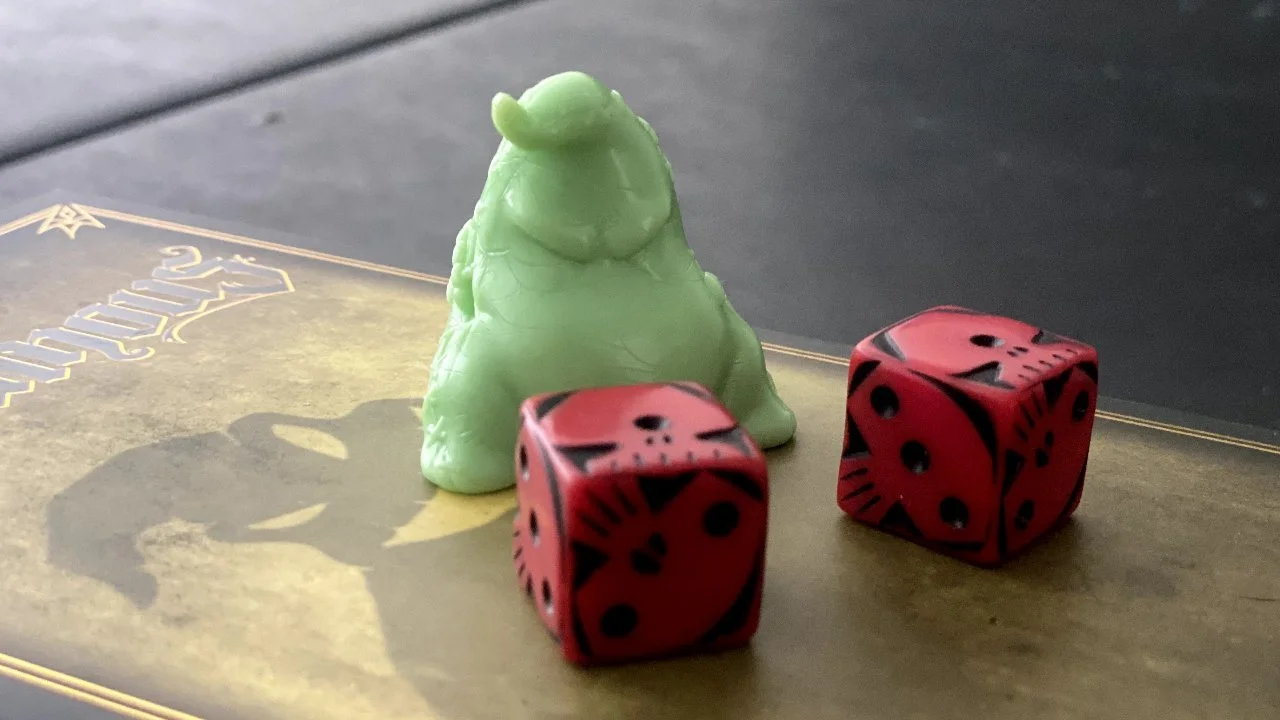PC Review Code Provided by Humble Games
Protodroid DeLTA is a delightful 3D platforming shooter that reinvents Mega Man’s combat and story for a new era as a delightful love letter to the classic series. Protodroid DeLTA comes to us from developer Adam Kareem and publisher Humble Games. Protodroid DeLTA is very clearly a spiritual successor to Mega Man in premise as well as design, but that doesn’t make them the same game whatsoever.
This game has a heavy emphasis on platforming making full use of its 3D platforming world. The story is also told through beautifully drawn comic book-style cutscenes. Overall, Protodroid DeLTA is a delightful love letter to the past but it doesn’t let history dictate how it was designed.
Story
Protodroid DeLTA takes place in a vibrant solar punk world filled with a diverse cast of characters from a variety of different backgrounds, this, in particular, doesn’t affect the story, but it does have an influence on the world in terms of level design matching each character's cultural background. Overall, it's just nice to see more representation in video games instead of the cliche cookie cutter gruff white male protagonist with stubble, and I say that as someone who fits that description!
The story takes place in the futuristic world of Radia, where solar power is dominant, and humanity and technology coexist with nature. You play as a type of robotic android known as a protodriod named DeLTA. Your creator/mother Dr. Shelton as well as many other inhabitants of Radia, is being harassed by a group of mercenaries/local dictators known as the Vypers. One day, while Dr. Shelton is running you through various tests, the Vypers attack which you repel, but it is the final straw and you decide you must protect Radia and Dr. Shelton by taking the Vypers down. From there DeLTA will travel to 5 different areas controlled by Vyper leaders themed on their personality and heritage, from the crazy techno influencer to the stiff honorable warrior and more.
DeLTA is a firm believer in mercy and non-lethal violence and preaches the power of friendship to her beaten foes and allies to varying levels of success. Along her journey, DeLTA grows in power and conviction as she meets other people and protodriods like her friend AnnDroid, who fights for the same goals but with more lethal tendencies. DeLTA can complete the first four levels in any order she chooses before the final boss level is unlocked, but upgrades do differ between levels.
Protodroid DeLTA’s story as a whole is told through beautifully drawn comic book-style cutscenes that occur at the start and end of levels, and when DeLTA finds AnnDroid midway through a level to receive an upgrade. The story is a delightful adventure of friendship and adventure particularly suitable for children but also entertaining for adults, and I’m excited to see what happens next in a possible sequel.
Gameplay
The gameplay of Protodroid DeLTA is key and I was delighted by the game's incredibly smooth and decently challenging at times platforming. This game’s all about navigating straightforward levels with the use of dashing, jumping, dash-jumping, and mid-air dashing. Dashing around from platform to platform while avoiding obstacles and enemies is definitely the best part of the gameplay.
Combat is interesting, particularly boss fights, but in a level, enemies serve more to interrupt jumps and dashes to knock you off platforms and send you back. Enemies are more of a tax on your health points (HP) if you decide to fight them, which you don’t really need to unless they are specifically placed as an obstacle to platforming, which is common and actually, an interesting way to liven up platforming segments with the variety of unique powers and attack patterns enemies can have.
The main problem with combat is that the basic way to fight is either slashing something in melee with your blade or blasting with your blaster. As you progress you get different types of blaster shots, like shield piercing, multi-shot, stun, and energy shield, but it is literally pointless to not just use a basic charged energy blast as that will one shot every enemy or two shot if they have a shield. In fact, on the controller, at least, switching between the different balster types instead of just blasting takes more time and attending while you're dodging around an enemy when you could just charge blast it quickly. The special blaster types are really only useable in boss fights and there are only 2 of those per level, and it's still more efficient to just use your basic blaster and your blade in a boss fight. On the bright side the blade upgrades, like blad-dash, blade-spin, or mid-air-slice you get as your progress are actually very useful and key to some boss fights and even basic combat encounters.
In each level, the player will platform while fighting enemies on their way to reach various checkpoints to save their progress. Along the way, players can find health and energy upgrades that are locked behind more challenging platforming sections than the base level. Dispersed throughout the levels are also collectible tokens and currency. Tokens unlock different cosmetic armor suits to wear and currency can be used to buy three different permanent upgrades, like a quicker charge time for your blaster, as well as consumables that you can use to regain health or energy at any time in a run. There is a max amount of each consumable you can have at a time but they can be purchased as many times as you want.
Audio and Visual
The audio and visual design is where the game really shines. Each level has its own music track themed to match the final boss of the level and the general design of that level's world and environment. For example, the rock and roll boss has a kicking rock track and the crazy influencer boss has a techno-themed track to match its futuristic city full of neon.
The graphics won't stun audiences with amazing detail, but they will hold up decades down the line thanks to their unique, simplistic, and bright style, whereas more realistic-looking games will seem plain compared to the new generation. Each level is beautifully designed and detailed to its own unique theme and the particle effects are clear and precise telling the player exactly what is going on and what they can expect will happen. In addition, the story panels at the start and end of missions are beautiful and showcase the characters' emotions and styles without becoming too chaotic.
Replayability
Intrinsically, there’s not much replayability to Protodroid DeLTA. Most players will be able to unlock all the upgrades and find all the tokens needed to get all the suits of armor without having to replay levels. If they don’t, however, you can start a level at any point where you found a checkpoint. Once you’ve beaten the game and unlocked everything, there's not much point in doing it again, but you can if you want to. However, I do believe that Protodroid DeLTA would be very interesting to the speedrunning community, there are plenty of ways to perfect runs and lots of little ways to make runs even faster. So if you are a speedrunner, there's plenty of replayability and the game goes out of its way to make practicing different sections of each level easier.
What It Could Have Done Better
My main gripe is the combat and it’s not even that big of one. I actually like the way that enemy encounters are used to increase the difficulty of platforming sections, however just base combat areas feel pointless a lot of the time, and you can actually just skip them most of the time. Combat against non-boss enemies isn’t challenging at all and the extra blaster unlocks - while an interesting idea - are actively a worse choice for combat than just basic charge blasts and melee attacks. Now, that’s not to say the combat system is bad, it isn’t, and boss encounters can make use of different blaster options, and are decently challenging. I just feel there were more ways to use the extra blaster options, but the goal of being able to complete the levels in any order got in the way of that.
Let's say each level had to be done in a specific order, then you could have later enemies require the use of specific blaster types, or have a blaster type be used to solve a light puzzle to progress in platforming. Unfortunately, the blaster upgrades generally just feel tacked on for the sake of having upgrades, and in my run at least I never really used them.
Verdict
Protodroid DeLTA is a delightful platforming adventure into a solar-punk world full of robot-on-robot action! A beautiful love letter to those classic robot platformers of the past, Protodroid DeLTA makes itself unique in both story and gameplay. The platforming is entertaining and addictive with a satisfying, if somewhat flawed, combat system. I can’t help but recommend this game to anyone who enjoys platformers as Protodroid DeLTA is definitely a contender. It is also a great game for children if anyone has kids that want to jump around and blast stuff. For the relatively low price of $20, Protodroid DeLTA definitely deserves to be on the wishlist of anyone who enjoys indie platformers.
Protodroid DeLTA is available now on Nintendo Switch, PS4, Xbox One, and PC via Humble Games and Steam.
